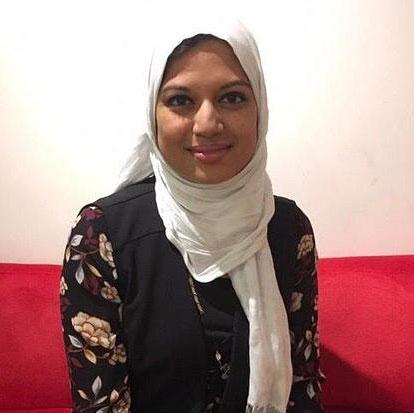Sara Hassan is a Digital Editor/Reporter at The World. She has more than two decades of journalism experience, as a writer, photographer, copy editor, reporter and field producer for TV, radio, magazines, newspapers and digital platforms. Sara worked for Al Jazeera English, Arabic and America for more than a decade, based in Washington DC, Doha and New York. She also worked for TRT World in Istanbul, Al Arabiya, The State Newspaper of South Carolina and served as the Editor-in-Chief of LALE Magazine in partnership with the International Women of Istanbul. In 2002, she did an independent study with the US Senate Press Gallery on Capitol Hill. Sara has expertise in the Middle East, South Asia and the US, has traveled to 30 countries, and has worked on a wide range of stories. Some of her field reports include Arab Spring protests in Bahrain, Bangladesh’s garment industry, an academy for orphans in Iraq and the 25th anniversary of the Srebrenica genocide. Her digital videos break down complex topics, such as the Lebanese political system, understanding Wahhabism, the conflict in the Strait of Hormuz and the pros and cons of using internet cookies. She has also covered the past five US presidential elections. Sara Hassan has a Master’s from Columbia University’s Graduate School of Journalism.
Native Americans hold National Day of Mourning on Thanksgiving in solidarity with Indigenous struggles around the globe
For more than half a century, groups of Native Americans have been gathering on Thanksgiving to mark a National Day of Mourning at a historic site in Massachusetts. They honor their ancestors who were subject to atrocities by settlers in the 17th century. Over the years, they have also been a voice for other oppressed Indigenous groups around the world.
Dozens of messages in bottles tossed by a Nantucket fisherman are found around the world
Fisherman Pennel Ames tossed hundreds of messages in bottles into the ocean off the coast of Nantucket, Massachusetts, asking anyone who found them to write back to him. Two decades later, people are still finding them around the world.
Museum exhibit highlights New York’s sacred spaces
The “City of Faith” museum exhibit looks at the New York City’s religious roots and immigrant experience, with a special focus on the South Asian community after 9/11. Curator Azra Dawood tells The World what inspired her and why such a discussion is important.
Subscribe to The World’s Latest Edition podcast for free using your favorite podcast player:



